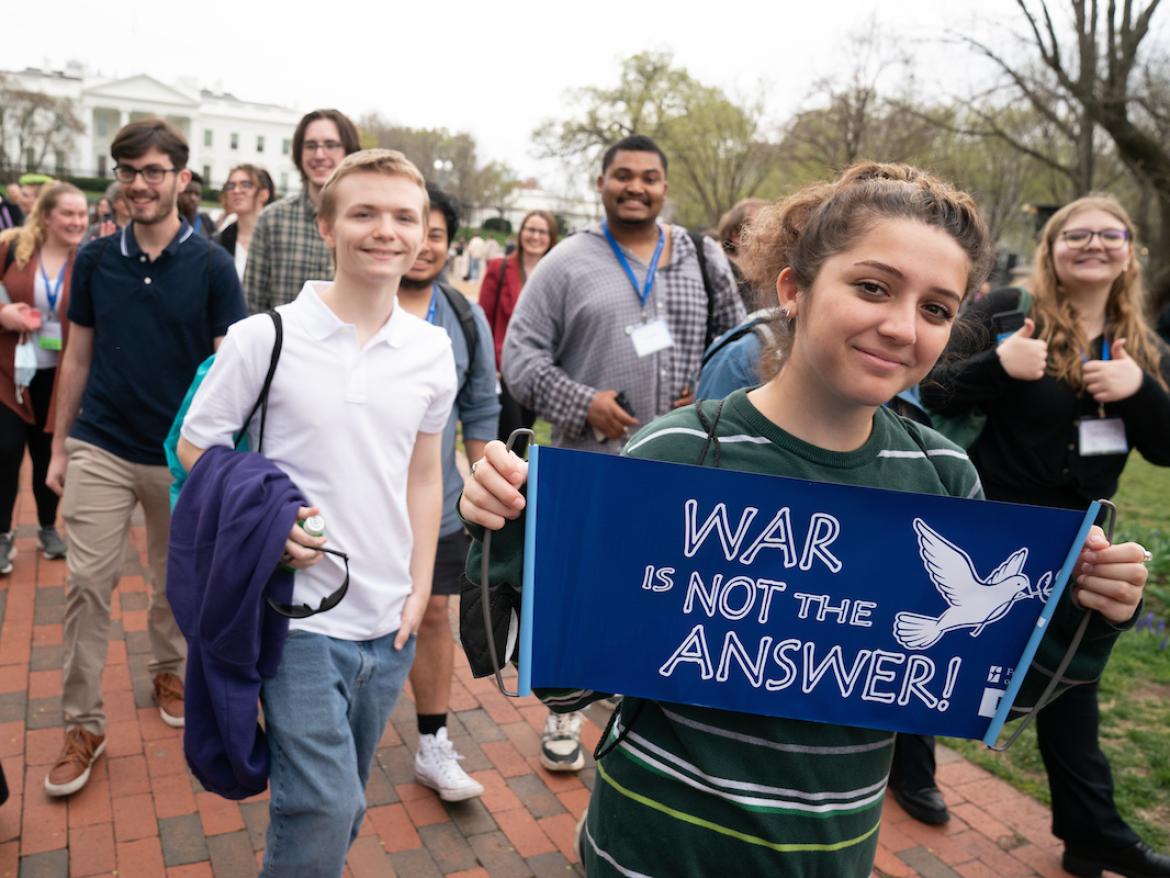This update is an excerpt from FCNL’s Annual Report for Fiscal Year 2022-23. Check out the full report here.
Since 1943, FCNL has been at the forefront of many important social movements, faithfully lobbying Congress and 15 successive presidential administrations to advance peace, justice, and environmental stewardship. Today, it is one of the most effective change agents in Washington, D.C.
From defeating mandatory military training to helping to thaw relations with China, FCNL’s first 30 years were marked by efforts to stop violent conflict around the world. Its advocacy resulted in laws that provided relief to Europe and played a significant role in the creation of the Peace Corps in 1961.
In the 1970s, FCNL led efforts to cancel the appropriations of $474 million to the South Vietnamese military, expediting an end to the U.S. war in Vietnam.
A decade later, FCNL helped thaw relations with the Soviet Union, and built congressional support for a series of international treaties to reduce the number of nuclear weapons and lessen the threat of war.
Then, in the 1990s, FCNL helped to ratify the UN Convention on Chemical Weapons and then advocated for the United States to adopt a code of conduct on arms transfers.
It was 9/11, however, that would catalyze a pivotal, lasting shift in U.S. foreign policy. That turning point ignited more than two decades of endless wars. War then was not the answer; it is still not today.
Throughout its history, FCNL’s grounding in Quaker faith and practice remained steadfast. It is committed to the long game, with its tireless community of advocates often working for years to move policy through Congress.
As the political landscape in the country changed, FCNL also continually evolved to meet new challenges. From a single entity it evolved into three Quaker organizations now bearing witness on Capitol Hill: FCNL, FCNL Education Fund, and Friends Place on Capitol Hill.
At 80, FCNL’s work is far from over. In fact, it is only beginning.


